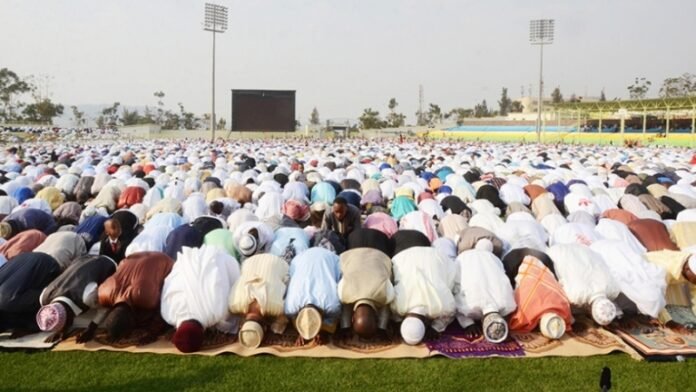
Kagabo says that he has done that for the last 18 years, during which he and his family dedicate themselves to not only fasting but also doing charity work in the days leading up to Eid al-Adha.
Today, an estimated 1.6 billion Muslims all over the world celebrate Eid al-Adha. But what really does this day symbolise and how is it different from Eid al-Fitr?
Here are the things you need to know.
1- While Eid al-Fitr marks the end of a successful fasting month of Ramadan, Eid al-Adha, otherwise known as the “Festival of the Sacrifice”, honours the famous story of the willingness of the prophet Ibrahim (known as Abraham in the Bible) to sacrifice his son, Isaac as an act of obedience to God’s command.
Just as Abraham was about to obey the command it is believed that Allah determined that he had passed the test and automatically spared his son’s life and instead replaced him with a lamb.
2- Despite the sacrifices that come with Eid al-Fitr in terms of deprivation, Eid al-Adha is considered the holier of the two Islamic Eid festivals.
3- Eid al-Adha falls at the end of Hajj, a pilgrimage to Mecca in Saudi Arabia which millions of Muslims undertake at least once if they are financially and physically able to. This year, the number has significantly been reduced following the outbreak of the coronavirus.
4- To celebrate the day, Muslims often slaughter a lamb, sheep or goat as part of the festivities, which is then divided into three parts to be shared within your home, among the poor, and with relatives. The animal must be in good health and over a certain age.
5- The act symbolizes our willingness to give up things that are of benefit to us or close to our hearts, in order to follow Allah’s commands.
It also symbolizes our willingness to give up some of our own bounties, in order to strengthen ties of friendship and help those who are in need.
Despite various coronavirus lockdown measures easing in recent months, given the communal nature of much of the celebration means that this year’s will still take on a different feel.
In ordinary times, once the sun has risen fully in the sky devout Muslims will pray ahead of the Dhuhr prayer at noon.
Source: The New Times











